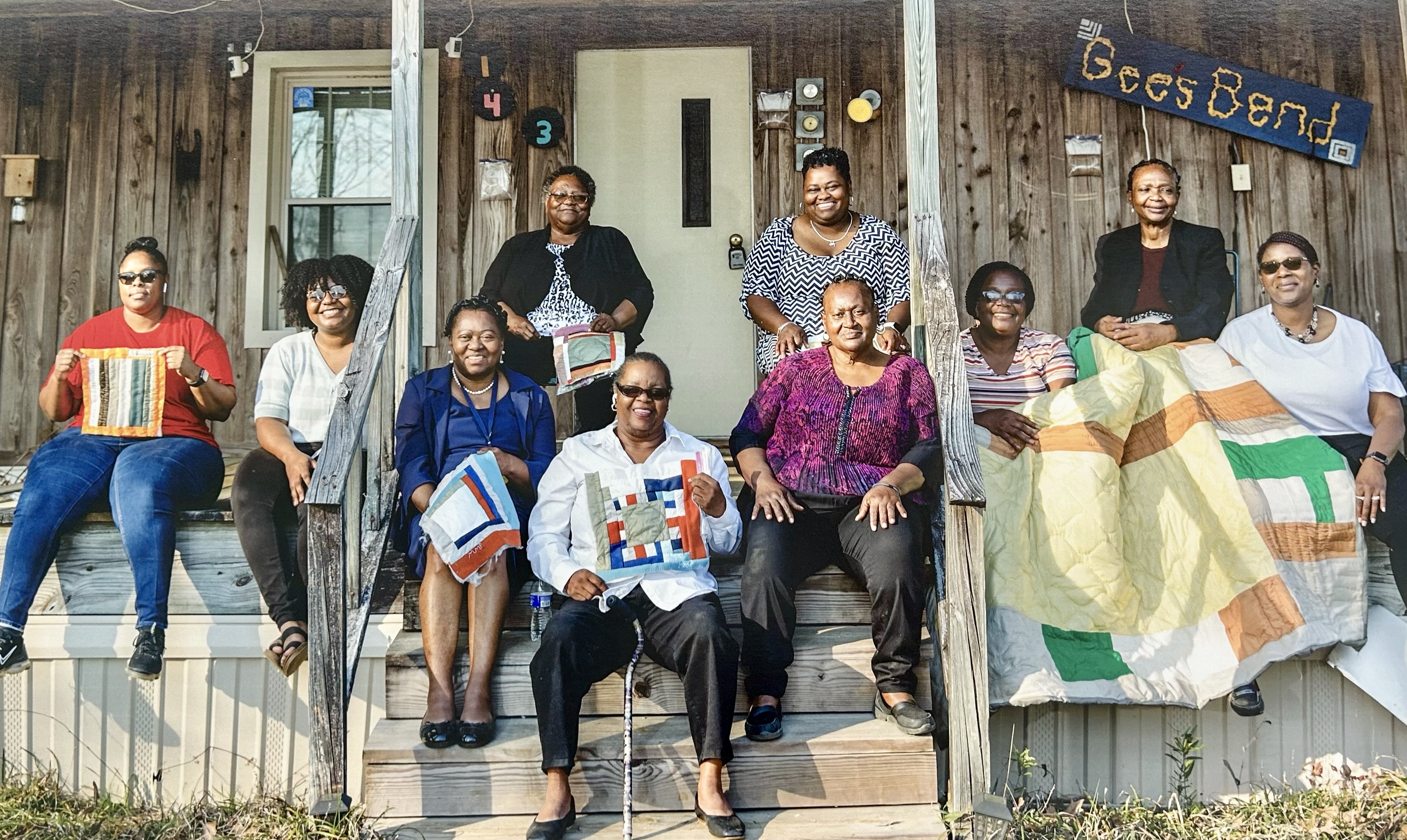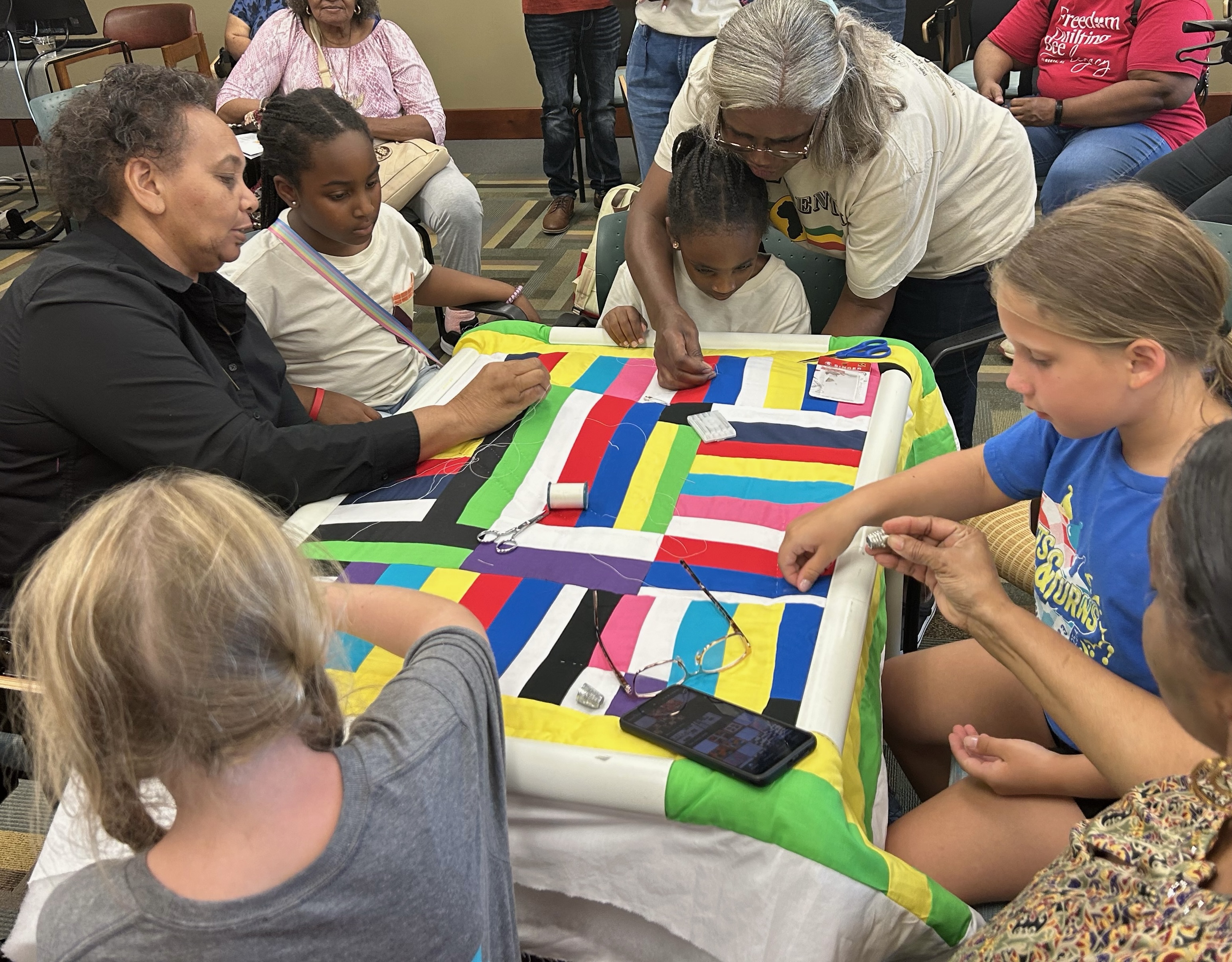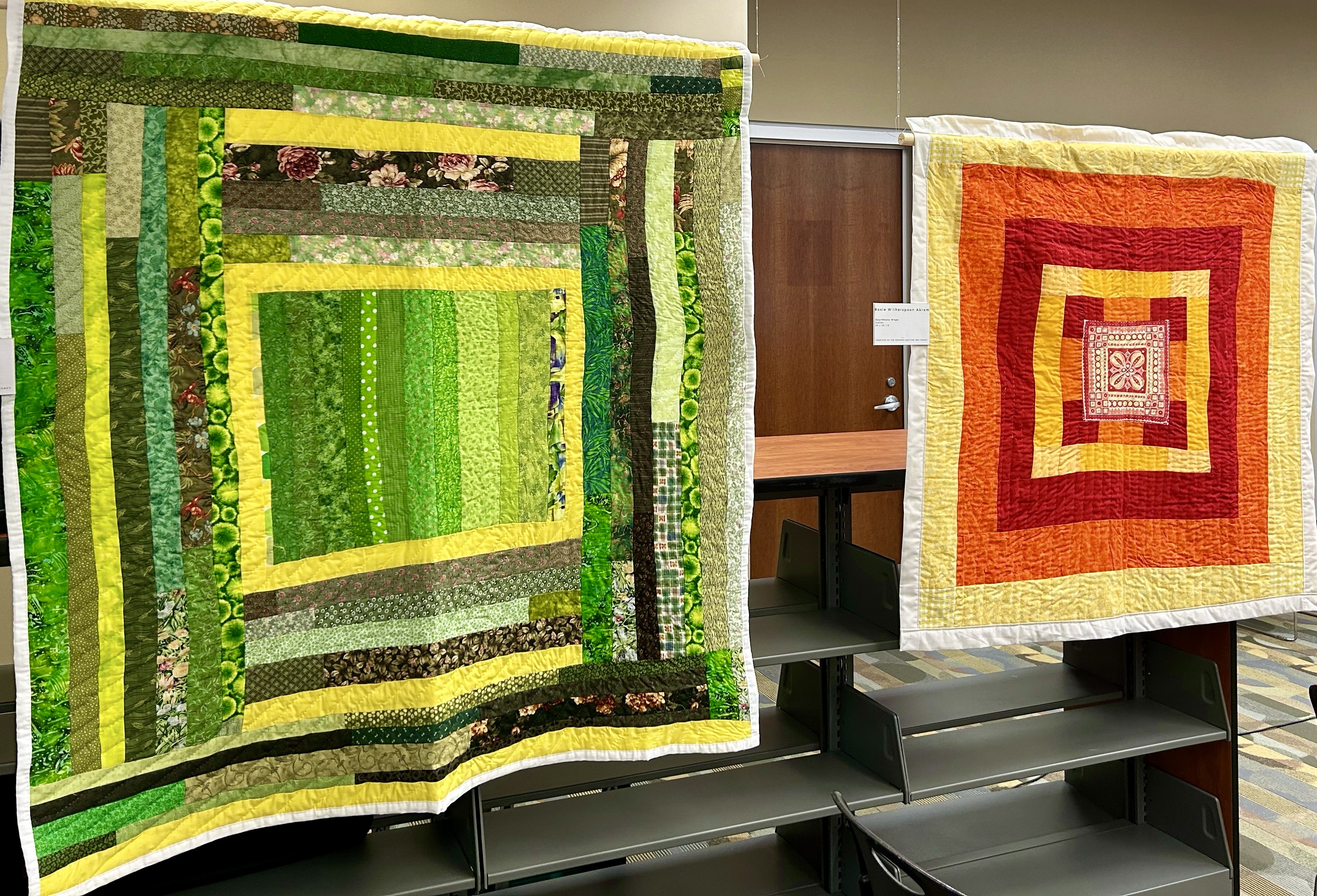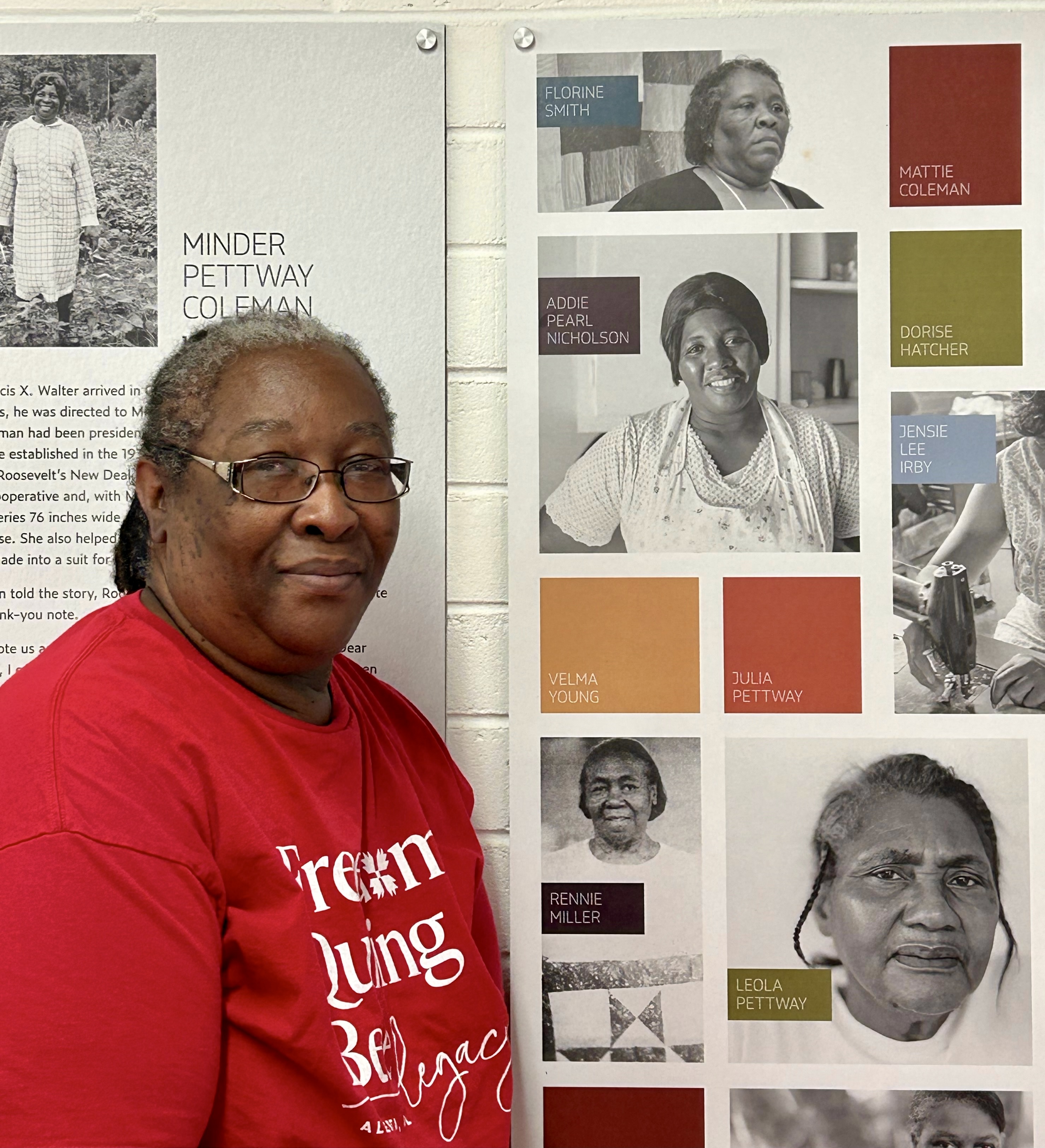Legacy of Gee’s Bend quilts continues to be celebrated
The nationally recognized “Gee’s Bend Quilts and the Freedom Quilting Bee Legacy Exhibition” is open at Alabama State University’s annual Colvin-Feagin Art Show through July 31.

The opening event on July 11th featured a forum with special guests, including Freedom Quilting Bee advocates and artists, and a workshop where quilters shared the art of quilting with those who attended. The Freedom Quilting Bee Legacy was awarded a certificate of appreciation from the university.

The annual event was designed to honor notable artists and ASU alumni, Dr. William E. Colvin and John W. Feagin, and was hosted by the University's National Center for the Study of Civil Rights and African American Culture.
Cleve Webber, Curator and Professor of Art at Alabama State University, noted, “This exhibition celebrates the legacy of artistic excellence and activism behind the Alabama Gee’s Bend Quilters. Quilting has deep roots in African culture, which was brought to America by enslaved people. On plantations, women crafted clothing from scraps. By the 1700s and 1800s, bed quilts became valuable household items, fostering a tradition of teamwork that continues today with the Freedom Quilting Bees.”
The Gee’s Bend Freedom Quilting Bee, a collective of African American women founded in the 1960s, continue to influence the cultural heritage of the Black Belt through their stunning abstract art that forged a powerful narrative of resilience and empowerment, he added.
The Freedom Quilting Bee, far from being solely an artistic endeavor, was a significant force in fostering economic independence for women. The income generated from quilt sales improved living conditions and provided a crucial foundation for financial stability.

Kim Kelly, Freedom Quilting Bee Legacy Events Coordinator, shared the Bee’s origins. She said, “In the early 1960s, the Rev. Francis Walter came to Wilcox County to register voters. He saw the beautiful quilts outside of homes in Gee’s Bend and convinced the women to sell them for $10 each. He sold them in New York for $25 each and returned the money.”
Kelly added, “As recognition grew, the Freedom Quilting Bee became a cooperative supported by designers such Jackson Pollock and Diana Vreeland. Today, these quilts are displayed in 30 museums worldwide.”

Shelia Smith, a Freedom Quilting Bee Legacy Artist, recalled, “I have been quilting since 1985, when my mother, Florine Smith, taught me. She worked with the Freedom Quilting Bee for years, specializing in different quilt patterns. This became a place where women could unite and quilt together.”
Today, the group is a nonprofit 501 (c) (3) organization. Smith said, “Now, we aim to help the community and revitalize the original building. During the civil rights movement, this building was a meeting place for those fighting for voting rights.”
The legacy continues through ongoing efforts to celebrate and promote the quilting tradition of Gee’s Bend that created what the New York Times called “some of the most miraculous works of modern art America has produced.”
The community will celebrate its generations-old quilt-making tradition at the 2024 Gee’s Bend Airing of the Quilts Festival Oct. 12 from 9 a.m. to 5 p.m. in Boykin, Alabama.The event will feature quilt displays and sales, workshops, guided tours, exhibits, music and food.
Tags: Camden